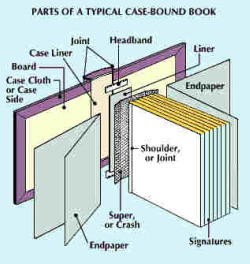 I was really excited to discover this article by Katharine Reeve on Times Higher Education – it’s, of course, excellent!
I was really excited to discover this article by Katharine Reeve on Times Higher Education – it’s, of course, excellent!
Reeve picks up on the key point that drives this website, which is that there isn’t much support for academic writers when it comes to learning how to propose and write a book. She states:
“While fiction authors are surrounded by advice books, websites and degree courses designed to help them get published, academic authors are left to their own devices. How are you supposed to know what is and what is not a publishable text? An academic is generally a researcher first and a writer second: you may be an international authority on Viking headwear or poststructuralist theory, but you are unlikely to be as expert at writing full-length publishable books. Unless you have a savvy supervisor or have learned by trial and error, getting into print can be tough.”
She also goes on to offer some insight on why publishing is so important:
“It makes them visible, earns respect and a reputation and ultimately legitimates them as academics. And perhaps more importantly, it gives their mothers something tangible to boast about.”
This last point about mothers made me laugh, but actually it’s not far from the truth. You spend your whole PhD-period working on something apparently intangible to everyone except your supervisor, so the desire to produce something you can actually point at in the real world only intensifies after you’ve finished and – still to the mind of all outsiders – don’t appear to have anything to show for your hard slog. All that aside, in this employment climate, having a book under your belt is really going to lend weight to your CV, but I like the fact Reeve doesn’t disregard the complex weave of emotions that constitute the academic lifestyle.
She also mentions the ‘sustained deep thinking’ that is required to write a book. It was this style of working that caused my infamous Nutella addiction in the last few months of my thesis-writing. But I think it bears mentioning that another pull towards book-writing is the knowledge that no matter how debilitating the ‘deep thinking’ can be (and nutritional worries aside) it’s kind of addictive. When you really climb inside an idea and make it your home, it starts to become a bit like one of those Magic Eye pictures from the 1990s (you know, the spotty ones you’d stare at in shops and then suddenly see the Statue of Liberty in 3D). I always think it’s important to remember that yes you want something to show for all that work and yes, you also want to advance your career, but when planning a book, you’re also looking forward to the think-fest that will inevitably ensue. It was Reeve’s phrase ‘sustained deep thinking’ that reminded me of all this – it’s easy to lose sight of all the reasons you’re planning a book when you’re actually planning it – and it does sound so much better than calling it the Nutella Phase!
Anyway, firstly, the reason this article is so good is that it provides clear and simple advice on the importance of networking, understanding the nature of different publishing houses, and of course how to win favour with commissioning editors. Reeve made me laugh again with the following advice:
“Resist the temptation to make passes at your editor or to paperclip tenners to your proposal. But friendly courtesies never go amiss. One author knew the best way to curry favour with me was to offer me his pudding at lunch; another taught me about horror films.”
Although now I’m trying to work out which editors might want their nails painted or their colours done – which probably isn’t the best use of my time! 😉
And Reeve has included in this article a great pitching guide and a breakdown of the stages of the publishing process.
The second reason this article is so good is that it speaks many truths I hadn’t thought of. For example the fact that all authors, no matter what level they are at career-wise, find the publishing process a bit daunting. All authors lament the time spent pitching when the book itself will never reach epic sales figures. And all authors will end up pimping their product at every available opportunity.
Really it’s the perfect mini-guide to academic publishing – go check it out!







Leave a reply